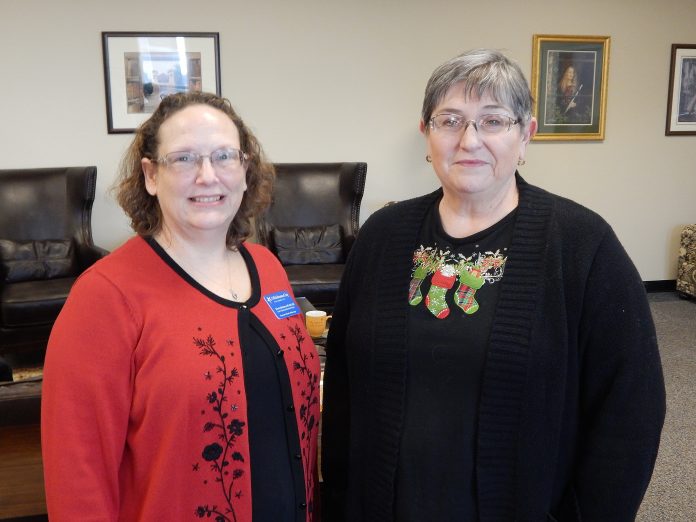
Kramer School of Nursing creates more pathways for careers
by James Coburn, Staff Writer
Kramer School of Nursing is embarking on a new initiative, said Linda Cook, associate dean. Duncan Regional Hospital contacted Kramer in April.
“Their goal is to achieve the Institute of Medicine’s recommendation and the Magnet Hospital recommendation that hospitals be staffed 80 percent baccalaureate prepared nurses,” Cook said. “And they contacted us about seeing about bringing the program we have here to Duncan with the hope of recruiting nurses, students from that area who wanted to stay in that area.”
Duncan Regional Hospital already has televised equipment already established there, Cook said. In-turn, Kramer will be installing the same type of equipment on campus at Oklahoma City University.
“Most of the lectures will be done by broadcast, but we will have faculty go down there periodically,” Cook said. “We will be hiring a director who is there full time.”
The collaboration between Kramer and Duncan Regional hospital will commence in the fall semester beginning in August.
Dianna Bottoms, chair of the Gateway Education program, is in charge of the pre-licensure program for students interested in getting their bachelors degree and are preparing for their exam.
“We understand that there are well over 100 students interested, but we’re only going to accept 20 for the first cohort,” Bottoms said.
The program that will be televised to Duncan is the same program being done at Kramer. It will be televised to the Duncan classroom at the exact same time it happens at Kramer School of Nursing.
“So they are essentially just an extended part of the same classroom,” Bottoms said. “They’ll have all of the same lectures, exams and lab experiences that the students experience here.”
This extension of the classroom experience will be advantageous to Duncan. Students will learn from an excellent faculty with a fine reputation across the U.S.
“We have an excellent program here at the school,” Bottoms said. “Caring is a big part of what we do — caring for patients and caring for our students. And we think we can use that same process to work with the students that are down in Duncan.”
The students will benefit from having the program accessible without having to travel to Oklahoma City for the same information. The drive between the two cities takes about 90 minutes, Bottoms said.
There exists only one baccalaureate program in Duncan, but their acceptance is limited, Bottoms continued.
“This will give them another venue to try to attain that degree, “Bottoms explained.
Another unique aspect of the program is something Kramer will be starting new, Bottoms said. Many of the students attending Cameron University earn their Associate degree in Science of Applied Health. Kramer will be accepting this degree in order to meet all general education requirements, Bottoms said. However, this will not apply for religion studies.
“Once they have that degree, plus all our prerequisites for science and psychology, they will be able to start the nursing program without having to meet any of the other general education requirements,” Bottoms said.
Cook said there has been much preparation for these initiatives. Kramer had to get permission from its accrediting agency and the Higher Learning Commission to have a campus site away from Oklahoma City.
They have also been writing grants to pay for the electronic component of the program. The first week in February will be time for an open house in Duncan for a marketing venture.
“There’s all kinds of behind-the-scenes activity that’s still occurring to let them know we are coming,” said Cook, who has been with Kramer for 10 years.
Cook said the new programs further Kramer’s mission to reach rural and under-served communities that do not otherwise have access to nursing education.
“We still have a tremendous amount of shortage in the rural settings,” Cook said. “Some of the shortage has begun to ease in larger cities, but in rural settings, nurses are still like hen’s teeth. So by taking education to rural settings to nurses who want to stay in rural settings — we’re filling that need.”
Bottoms said other programs will be started in Duncan as well. The RN to BSN program will take nurses from an associate degree a step higher in their education.
“That’s another part of that mission on increasing the number of baccalaureate prepared nurses,” she said.












